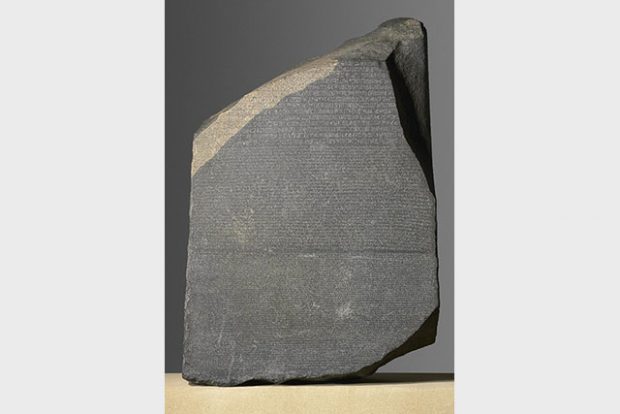The History and Social Study of Science
MIT Prof. Loren Graham on biomedical ethics, challenges of becoming an academic discipline, and the impact of ...
I’ve lived in England for about 20 years and ever since I moved here English people have been telling me that weather is one of their very favorite topics of discussion. It turns out that in Ancient Greece and Rome people were interested in weather as well. In fact, the people who were probably the earliest scientists in Greece, the ancient Pre-Socratic natural philosophers, apparently also had quite a bit to say about weather too. They were interested in understanding what causes weather phenomena. The Greek word “meteora2 refers to lofty things, to things that are high up. It’s that word from which our modern word “meteorology” derives. It turns out though for the Ancient Greeks that the study of meteorology didn’t only include what we would call weather phenomena (things like snow, rain, hail, wind), but also included some things that we would regard as astronomical phenomena. For example, comets, but also geological or seismological phenomena, including earthquakes. The main way that we know that such an extensive list of natural phenomena were included in the study of meteorology is that when we go to Aristotle’s work called “The Meteorology”, he tells us at the very beginning exactly what the work studies, and he gives us a very long list of the things I just mentioned and more.
I think, one of the things that really distinguishes the Greek natural philosophers’ approach to explaining weather and other meteorological phenomena, including earthquakes, is that they in their explanations they wrest control of these phenomena out of the hands of the Gods and instead offer rational, natural explanations. They emphasize that, for instance, thunder and lightning is not due to the Gods. They may believe that Gods exist, but the Gods are not causing the weather. So, for instance, if we look at Epicurus’s ‘Letter to Pythocles’, in which he talks at length about weather phenomena, meteorological phenomena. He makes it very clear that we can have a rational understanding of weather, but it is not due to the Gods. In fact, in Epicurus’s worldview the Gods are too busy to be bothered with something as mundane as weather. The Ancient Greeks had explanations that were based on nature for how weather happens. Some of the philosophers, like Epicurus, like Theophrastus, seem to be content with coming up with several alternative possible explanations of different clauses for weather phenomena. They were happy with an idea that, in principle, we can explain these phenomena naturally. It doesn’t matter whether or not we have one explanation, or the right explanation. This is an interesting approach, I think, to doing science, to explaining nature.

When we look at some of the Hellenistic philosophers after Aristotle, philosophers like Epicurus and the Stoics, part of their aim in doing natural philosophy, in explaining nature was to provide people with a way of feeling, of a sense of calmness, of being free from worry. And they’re very explicit about that. And, of course, if you’re worried that you’re going to be hit by lightning, or if you find thunder very frightening, or if you’re worried about torrential rain and you think it’s in the hands of the Gods, you may be very worried and feel uncomfortable. But Epicurus, for example, suggests that we don’t need to worry about these things – they just happen naturally. And so we shouldn’t worry about the Gods.
Not all of the people who wrote about weather were interested explaining it. Some of the Ancient Greeks and Romans were interested in predicting weather, in being able to know what if there was going to be a lot of rain, if there was going to be a lack of rain, how this, for instance, might affect a harvest, etc. And this harkens back to Hesiod’s ‘Calendar’, ‘Almanac’ and the “Works and Days”. And we actually see a very interesting array of calendars that correlate astronomical phenomena with weather phenomena. And we also see many examples of what we might call a farmers almanac as well, we see them being collected by Ptolemy, the astronomer, who was very interested in this sort of astrometeorological calendar. We also see them in the writings of the Roman agricultural authors, the agronomers. It shouldn’t surprise us that farmers are interested in the weather. And Pliny the Elder, who wrote “The Natural History”, recounts a story that some merchants actually used weather predictions to help them set the prices for cloaks that they would be selling. If it was predicted to be a harsh winter then they knew that they could raise the price for their cloaks and gain more money. It’s interesting because Aristotle tells us in one of his works that Thales of Miletus was the first person who attempted to explain nature, to understand nature. So, in Aristotle’s view by our understanding of the word “scientist” Thales of Miletus would be the first scientist.
One of the questions that I’m often asked when people know that I’m interested in Ancient Greek and Roman meteorology, they ask me, whether or not people were able to predict the weather any better than we are today. And I say that we actually have quite a lot of evidence about weather predictions, for instance, being linked to birds, for instance, and different signs of nature, weather signs indicating what weather will be coming, but we don’t have any accounts to my knowledge of people saying; “Yep, I got that right”.

MIT Prof. Loren Graham on biomedical ethics, challenges of becoming an academic discipline, and the impact of ...

Computer scientist Erol Gelenbe on the idea of AI self-regulation, the goal function of a network and whether ...

Historian John Ashdown-Hill on one of the most controversial figures in English history, Shakespeare's dark im...